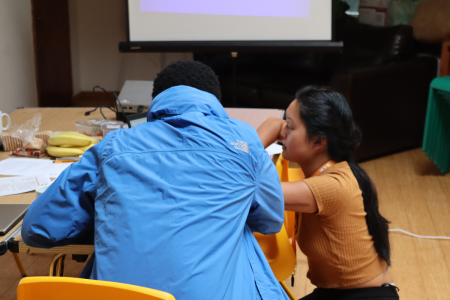How can you identify and resolve a skills gap in your company?
In today’s constantly evolving job market, with the rapid emergence of new technologies, products, and services, high-level skills are an ever-increasing priority for employers. But how does the current and future workforce match up to these expectations?
In a recent report, CBI found that despite an increasing need for higher levels of skills in the workforce, businesses are reporting shortages across the UK.
Their survey showed that although 75% of businesses expect to have more job openings for people with higher-level skills over the coming years, 61% are not confident there will be enough people available with the necessary skills to fill these roles.
It’s clear that the key to solving this problem is providing opportunities for training and retraining. Accessing potential employees with the right skills is essential; it is increasingly vital for companies to work alongside education and training providers, to make sure the preparation candidates are given meets realistic business needs.
Before embarking on either option, however, you’ll need to determine specifically what those necessary skills are. Only once you’ve identified where the shortfalls lie can you ascertain the most effective steps toward resolving them.
Conduct a skills audit
To get a clear idea of how the skills in your company meet the skills you require, begin by gathering information through an objective, well-defined assessment.
- Begin by compiling a list of the skills needed for each individual role in your organisation, to ensure a focused approach. As part of this, you could ask team members for their insights on the skills they think are missing.
- Using this list, produce a skills audit. To ensure a high level of detail and precision, categorise the skills you survey (e.g. by role type and level of importance). Whether you are using numerical or descriptive answers in your survey, these scores should be clearly defined to avoid any misunderstandings in the feedback.
- Analyse your findings, taking into account the core skills of each department as well as technical and behavioural capabilities across all areas of your company. Look at how closely these meet your current priorities, and what you expect to need in the future.
Recruiting for the skills you need
Once you have a clear picture of the skills you need in your business, recruitment can be the best option for filling gaps and bringing new talent into your company.
Inclusive hiring practices open the potential to recruit employees who meet your company’s needs. Paying attention to the way your job ads are worded, and where they are being advertised, can enable you to reach a wider range of people who could have the abilities you require. When assessing applicants, your HR department needs to be informed about non-UK qualifications, to avoid overlooking competent candidates. Internal changes like these can make all the difference in ensuring a diverse, skilled workforce.
ACH recognises the importance of preparing job candidates with strong skills and valuable experience for today’s workforce. Through training and support, we are working to bring upskilled refugees into the labour market. We offer businesses not only ideal candidates for paid internships and apprenticeships, but also qualified and competent individuals who are ready for technically-skilled work. We provide ongoing one-to-one coaching and support, to help businesses get their new employees successfully on board.
Refugees present an untapped pool of talent. By recognising the value individuals from this group can bring, businesses can open up new opportunities to address the skills they need, and to recruit effectively for the future.
If you would like to find out more about our work with businesses, please visit https://www.ach.org.uk/businesses


